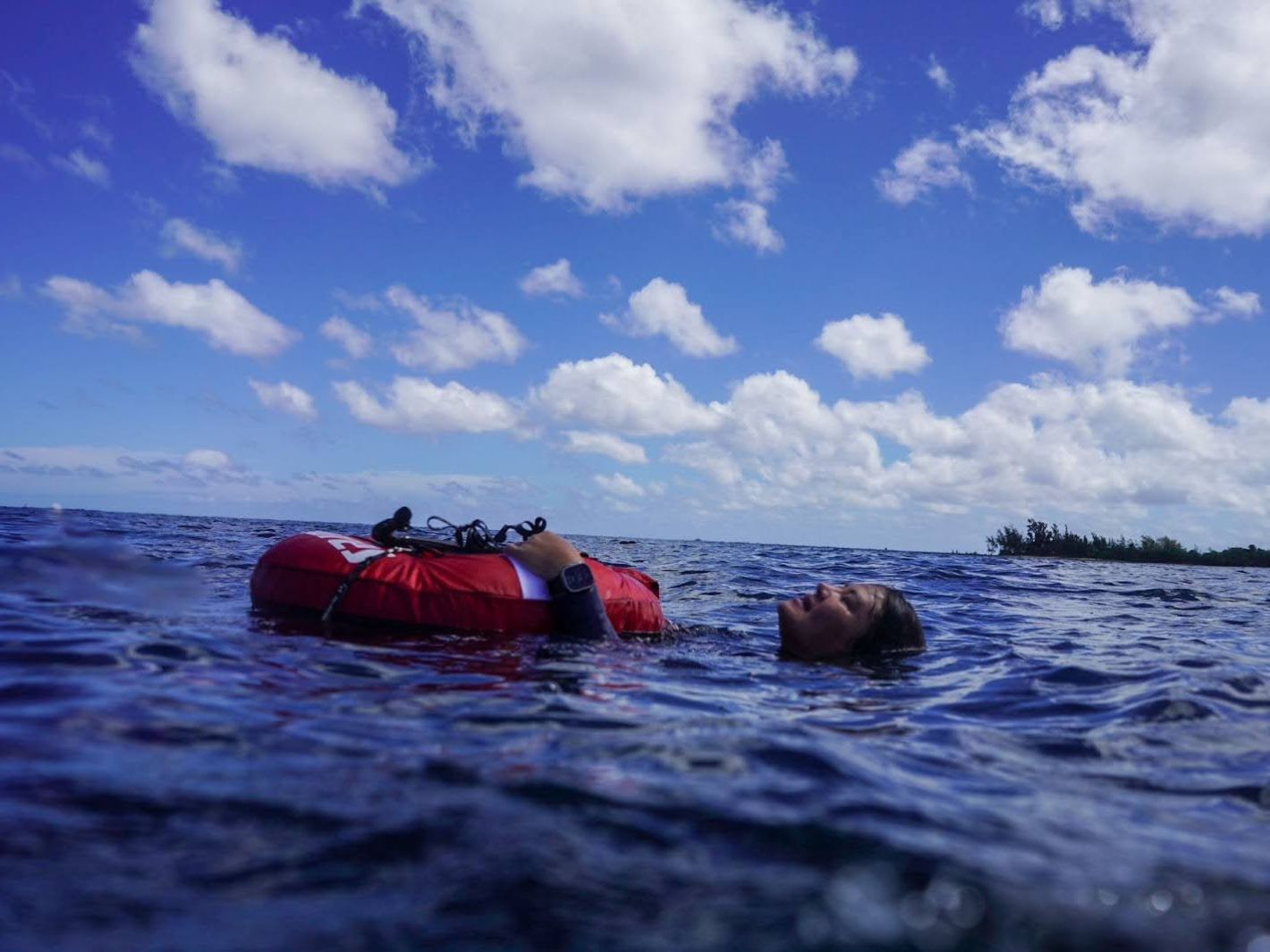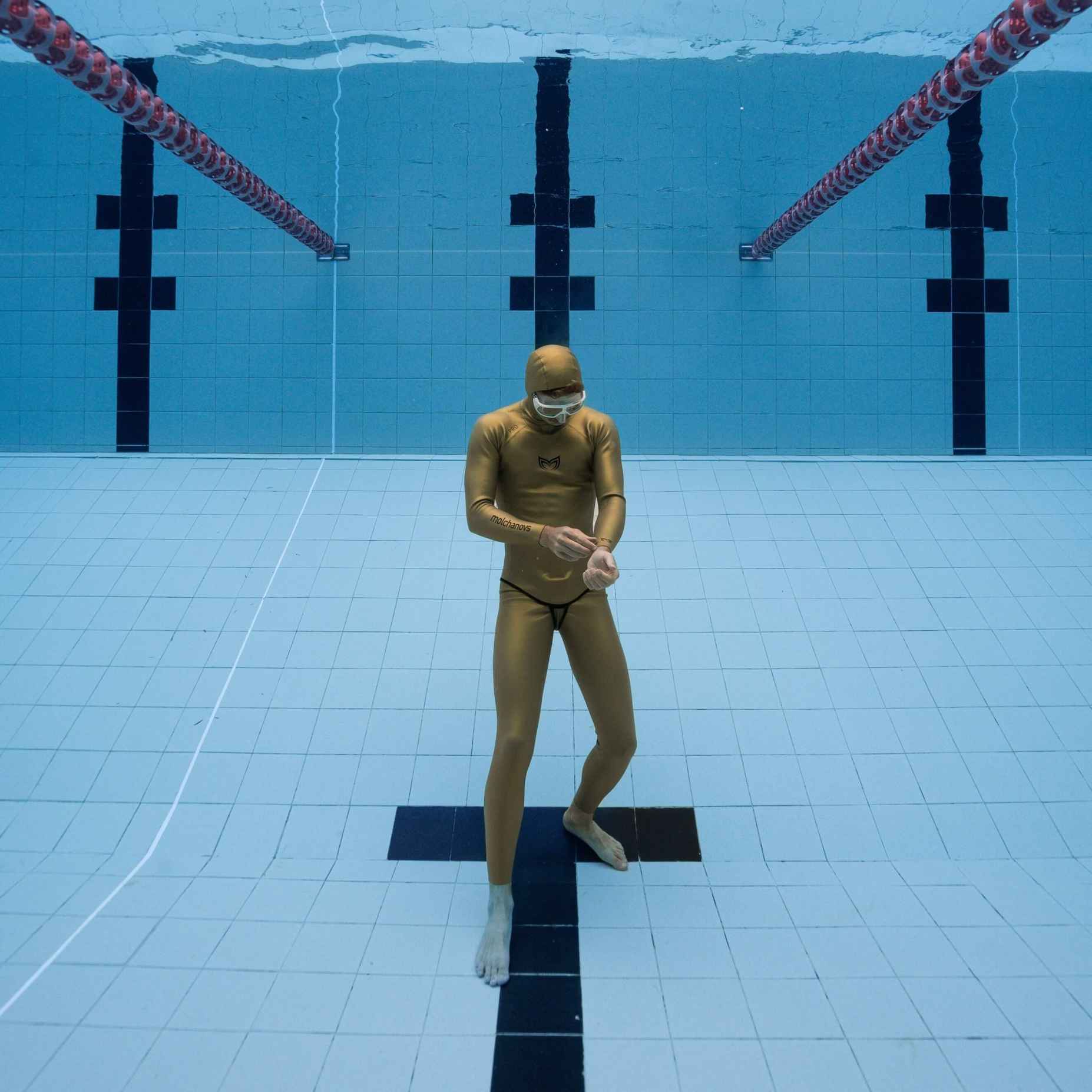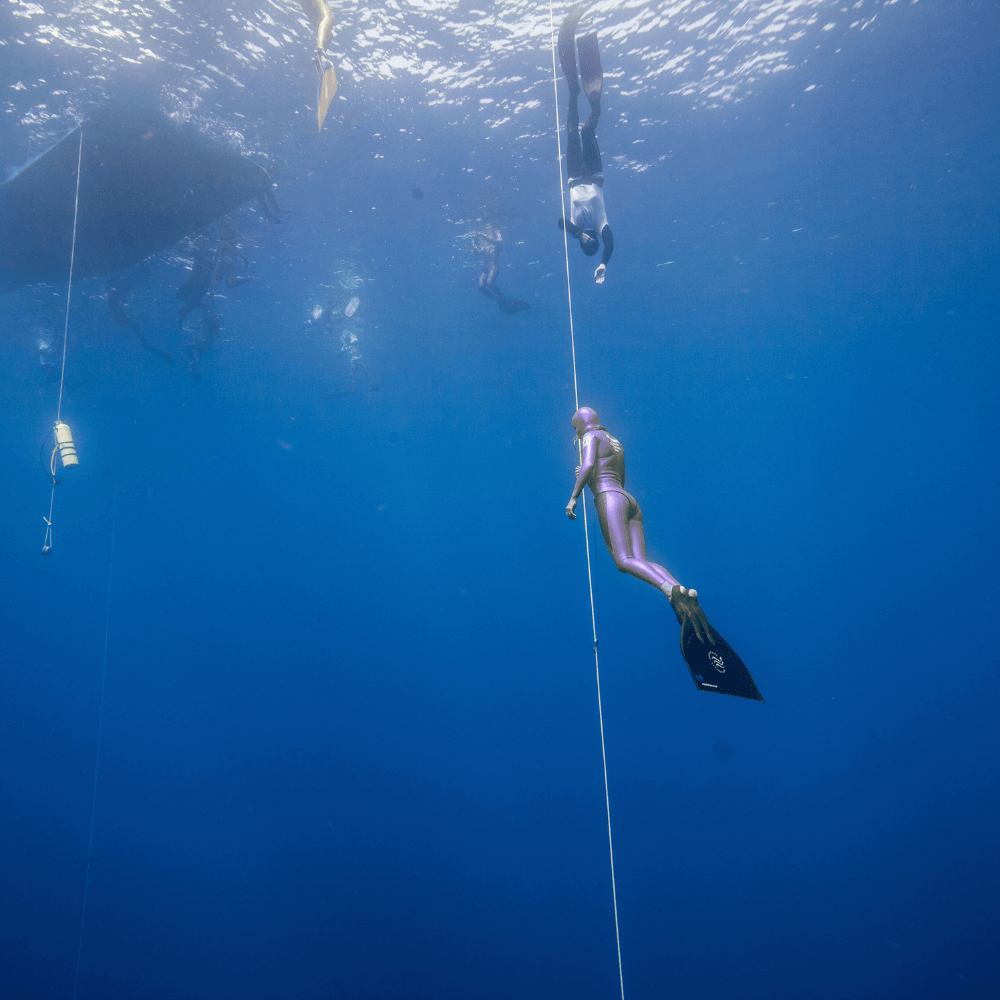From Trauma to Transformation Through Freediving

Breath is the bridge between the mind and the body.
By Jeremy Storton
Editor Deena Lynch
Photos provided © @theunderwatertherapist.
A teenage girl’s birthday is supposed to be a festive occasion, especially when celebrating with a sleepover. There should be giggles, treats, and talking late into the evening. Elaine Hicks thought her birthday would go accordingly. But what began as a joyful event suddenly took a turn at 3:26 in the morning when a car bomb went off in the neighborhood. Jolted awake, her joy turned to fear, which insidiously attached itself to her nervous system to form a scar.
Elaine grew up in a US military family living overseas. Her father was stationed in West Germany in the early 1980s during a difficult time where the US military faced opposition from terrorist groups. There had been other acts of terrorism, but this one was close to home. In a recent conversation, her eyes shifted upward as she recounted the experience along with the story. “That left imprints in my nervous system that I never really could uncover,” she said, “until I started freediving.”
According to the Trauma Research Foundation Trauma is:
“a complex experience that overwhelms an individual's capacity to cope, leading to lasting physical, psychological, and relational damage, often stemming from events that threaten one's sense of safety and predictability in the world.”
In short, traumatic exposure causes changes in the nervous system that are a normal protective response to overwhelming events and must be processed properly. If not, then that experience can cause problems later in life that can manifest in seemingly unrelated ways. In some cases, the effects of adverse events are just like physical wounds, impacting the nervous system. Some wounds will heal, but people can carry the mental scars their entire lives.
Hicks went on with her life, leaving that event in her past. “I never got diagnosed with anything, because I always presented with other things,” she said. However, that experience likely paved the way for her to enter the mental health profession and become a licensed clinical social worker (LCSW) with a focus on trauma, substance use, and research. She also teaches about the physiological impacts of trauma at the university level. “Working in mental health, I think, on some sort of subconscious level, was me trying to figure out [what happened].” She spent her career trying to understand the impacts of events like she experienced and how to help others piece their lives back together.
 A licensed therapist, Elaine Hicks incorporates freediving into her patient practice. ©
A licensed therapist, Elaine Hicks incorporates freediving into her patient practice. ©
Now living in Hawaii, on one memorable day, a friend told her that a pod of dolphins was hanging out offshore. Hicks went to the ocean to go snorkeling, hoping to catch a glimpse. She had planned on simply enjoying the water, but instead she experienced a breakthrough. “All of a sudden, I’m laying there on the surface, and my body is relaxing in a way that I didn’t think it was capable [of],” she said. “And I felt myself in such a different way. I couldn’t make sense of it.” For Hicks, freediving became a catalyst to reconnect her mind and her body. “Taking these dives and feeling myself in a different way and learning how to feel safe in my body was the game-changer,” she said. “What I needed now was the language.”
This experience prompted her to take a freediving class. She began to experience this sense of healing through breathwork and diving regularly. It was then that she had an idea: “If this was helping me change on such a deeper level,” she said, “how can I bring this to the people I work with in my therapy practice?” The idea was exciting and the possibilities were endless, which prompted her to ask an even more audacious question: “Could I become a freedive instructor and create a mental health program of some sort?” In the years that followed, Hicks became a freediving instructor offering freediving for trauma survivors to reconnect to their bodies. She found that the mental training and breathwork practice in freediving benefited those in her care, as well as students who were interested in adapting their nervous system through freediving.
 If you have suffered from adverse events, you are not doomed to suffer alone. Get the help you need. ©
If you have suffered from adverse events, you are not doomed to suffer alone. Get the help you need. ©
She has also spent the last few years conducting her own research to further define and bring functional language to the role freediving can play with patients who suffer from trauma. She has especially looked closely at the Polyvagal Theory, or the dual role that the cranial nerves have in both freediving and her trauma work. She learned that the same cranial nerves we use to connect with others and find safety are also responsible for equalizing, holding our breath, and moving our head to view sea life. Making this connection allowed her to better incorporate freediving into her trauma practice and her research has guided her work into the publication of her first book. Hicks has made it her life's mission to support freedivers in trauma recovery. “It’s science, but also it feels magical in the water,” she said, “when you can take command of your entire nervous system and make three shifts, and you’re connected to yourself like never before. It’s pretty fantastic stuff.”
Freediving isn’t just an underwater sport, it can also be a beautiful practice for those who are interested in the connection between mind and breath. Like for Elaine Hicks, it can be a way to learn to control their physiological response and reap the benefits of freediving long after we’ve left the water – to dive into the depths of the sea and catch a glimpse into the depths of ourselves along the way.
If you or someone you love has experienced trauma, we encourage you to speak with a qualified mental health professional. You don’t have to go through it alone - support and healing are possible.
The information provided in this article is for informational purposes only and is not a substitute for professional medical advice, diagnosis, or treatment. Always consult a qualified healthcare provider with any questions you may have regarding a mental health condition. Never disregard professional medical advice or delay in seeking it because of something you have read on a website.




Leave a comment